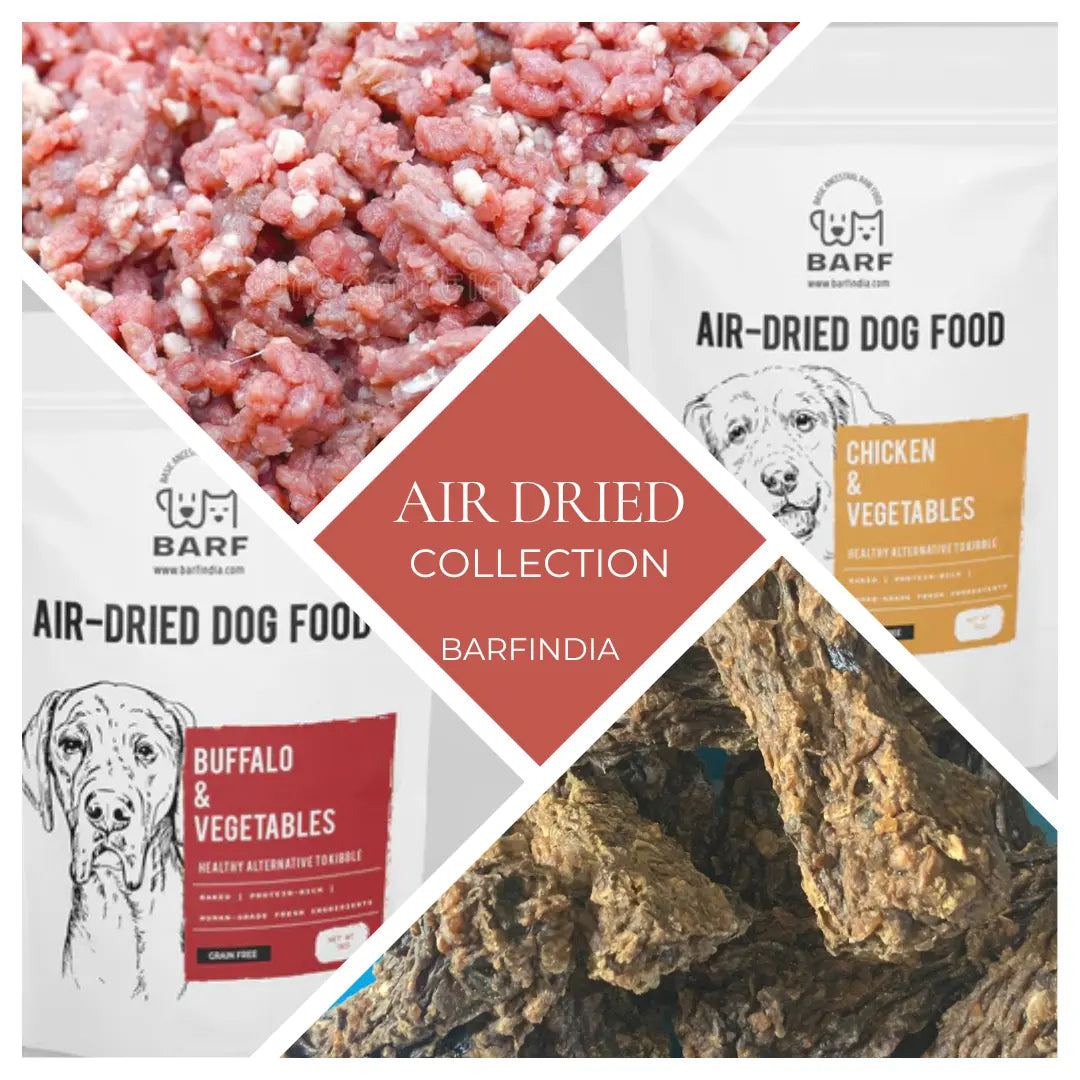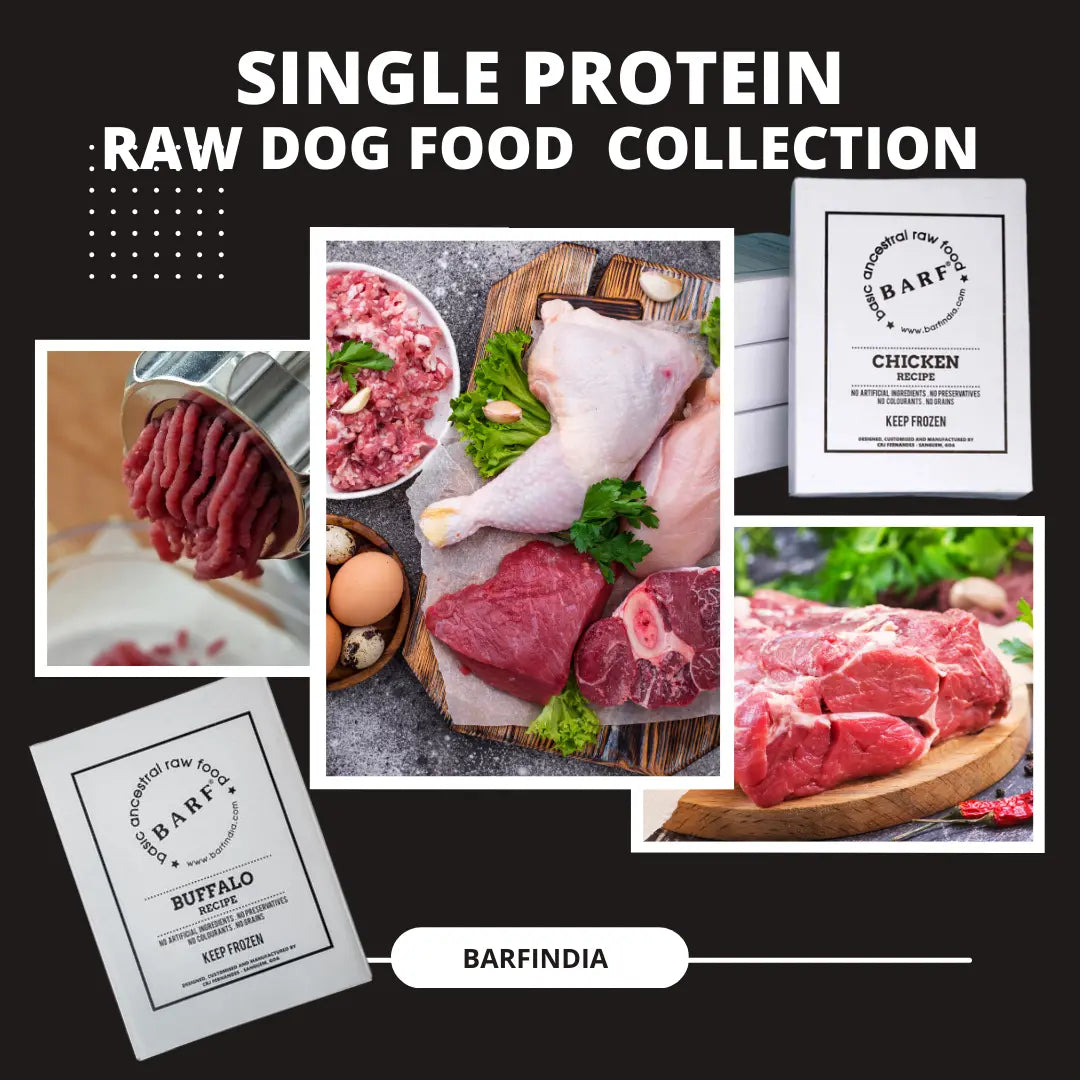
Why Has My Dog Suddenly Stopped Eating Dog Food?
Nivedita FernandesWhy Has My Dog Suddenly Stopped Eating Dog Food? A Comprehensive Guide for Pet Parents
My Dog Suddenly Stopped Eating Dog Food—a phrase no pet parent wants to say, yet it’s a common concern that can feel alarming. As pet parents, it’s distressing to watch your dog ignore food they once devoured with excitement. If you've found yourself searching “why is my dog not eating food” or “why won’t my dog eat their food anymore,” you're not alone.
There are many potential reasons behind this sudden change in appetite—from simple taste preferences and boredom to more serious health issues. Understanding the cause is the first step in helping your dog get back on track.
In this blog, we’ll dive into the possible reasons why your dog has suddenly stopped eating dog food, provide actionable solutions, and share tips on when to consult a vet. We'll also explore the behavioral, dietary, and environmental factors at play, ensuring you leave with a clear understanding of how to manage this issue.
1. Why Has My Dog Suddenly Stopped Eating Dog Food?
Common Reasons Behind Appetite Loss
-
Health Issues
One of the most common reasons for a dog to stop eating is an underlying health issue. Conditions like dental problems, gastrointestinal distress, or infections can make eating uncomfortable or painful for your dog.- Example: Max, a 5-year-old Labrador, stopped eating his kibble because he had an abscessed tooth. After a dental checkup and treatment, he resumed eating normally.
-
Boredom with Food
Dogs, like humans, can get tired of eating the same thing every day. If your dog has been eating the same type of dog food for months or years, they might lose interest.- Example: Bella, a Golden Retriever, refused her kibble but eagerly ate a new brand with Quail and sweet potato.
-
Environmental Stress or Changes
Dogs are sensitive creatures, and changes in their environment can affect their appetite. Moving to a new house, a new addition to the family, or even a change in feeding routine can disrupt their eating habits.- Example: Charlie, a Beagle, stopped eating after his owner started feeding him at different times due to a new work schedule. Consistency restored his appetite.
-
Spoiled or Unappetizing Food
If your dog food is expired, stale, or has been stored improperly, your dog might refuse it. Dogs have a strong sense of smell and may detect changes in the food that you cannot. -
Behavioral Issues
Behavioral problems like anxiety, depression, or dominance-related issues with other pets in the house can also cause appetite loss.- Example: Daisy, a Chihuahua, stopped eating her food when a new, more dominant dog joined the household. Feeding her separately helped her regain her appetite.
2. Medical Causes of Appetite Loss
When asking, "Why is my dog not eating food?" it’s crucial to rule out medical issues. Below are some health-related reasons your dog may stop eating:
1. Dental Problems
Dogs with dental issues like gum disease, broken teeth, or mouth ulcers may find eating painful.
- Tip: Check your dog’s gums and teeth for redness, swelling, or broken teeth. Consult your vet for a professional dental check-up.
2. Gastrointestinal Disorders
Conditions like gastritis, pancreatitis, or intestinal blockages can cause nausea and a loss of appetite.
- Example: Rex, a German Shepherd, refused food for two days and was later diagnosed with gastritis. With medication, he returned to normal.
3. Infections or Illnesses
Fever, viral infections, or more serious illnesses like kidney disease or cancer can cause appetite loss.
- When to Worry: If your dog hasn’t eaten for more than 24 hours, seems lethargic, or shows symptoms like vomiting or diarrhea, consult a vet immediately.
4. Medication Side Effects
Certain medications can cause nausea or a lack of appetite as side effects.
- Tip: If your dog has recently started a new medication, consult your vet to see if appetite loss is a known side effect.
3. Behavioral and Environmental Factors
Sometimes, the issue isn’t medical but behavioral. Let’s explore these scenarios:
1. Stress and Anxiety
Dogs may lose their appetite due to stress from loud noises, a new environment, or separation anxiety.
- Solution: Create a calm and quiet feeding area. Use puzzle feeders to engage their mind during meals.
2. Picky Eating Habits
Dogs can develop preferences for certain flavors or textures. Overindulging them with treats or table scraps can also make them picky about their regular food.
- Example: Luna, a Poodle, stopped eating kibble after being given table scraps frequently. Cutting back on human food restored her appetite for dog food.
3. Competition with Other Pets
If you have multiple pets, competition for food can cause one dog to feel intimidated and stop eating.
- Tip: Feed each pet in separate areas to reduce tension.
4. How to Address Sudden Appetite Loss
If you’re dealing with a dog that has suddenly stopped eating, here are actionable steps to take:
1. Rule Out Medical Causes
Consult your vet to ensure there are no underlying health issues. A thorough check-up, including blood work and X-rays, may be necessary.
2. Switch Foods Gradually
If your dog is bored with their current food, try introducing a new type of food gradually. Mix a small portion of the new food with their current food and increase the amount over several days.
3. Warm Up the Food
Warming your dog’s food can make it more aromatic and appealing. This works especially well with wet food or homemade meals.
4. Use Toppers or Broths
Adding dog-safe toppers, bone broths, or a small amount of wet food to kibble can entice your dog to eat.
5. Maintain a Routine
Dogs thrive on routine. Feed them at the same times every day, and avoid leaving food out for extended periods.
5. When to See a Vet
While many cases of appetite loss are temporary, you should consult a vet if:
- Your dog hasn’t eaten for more than 24-48 hours.
- They are showing additional symptoms like vomiting, diarrhea, or lethargy.
- You notice significant weight loss or other physical changes.
6. Preventing Future Appetite Issues
To prevent your dog from losing interest in food:
- Rotate proteins occasionally to keep meals interesting.
- Avoid overindulging with treats or human food.
- Schedule regular vet check-ups to monitor health.
Live Example: Case Study
Rufus and the Chicken Dilemma
Rufus, a 3-year-old Boxer, stopped eating his kibble overnight. His owner tried switching brands, adding toppers, and even hand-feeding, but nothing worked. After a vet visit, it turned out Rufus had developed a chicken allergy, which was a key ingredient in his kibble. Switching to a different protein like pork and lamb resolved the issue.
7. Conclusion
A dog’s sudden refusal to eat dog food can stem from a variety of causes, including medical, behavioral, or environmental factors. As a responsible pet parent, observing your dog closely and taking proactive steps can make all the difference. Remember, while some cases resolve quickly, persistent issues should always be addressed by a veterinarian.
If you’re still wondering, “Why is my dog not eating food?” consider keeping a food diary to track their eating habits and symptoms. This can provide valuable insights for you and your vet. With patience and care, you’ll have your furry friend back to enjoying mealtime in no time!
By following these steps and being attuned to your dog’s needs, you can effectively manage appetite issues and ensure their health and happiness. Has your dog ever stopped eating suddenly? Share your experience and tips in the comments below!



